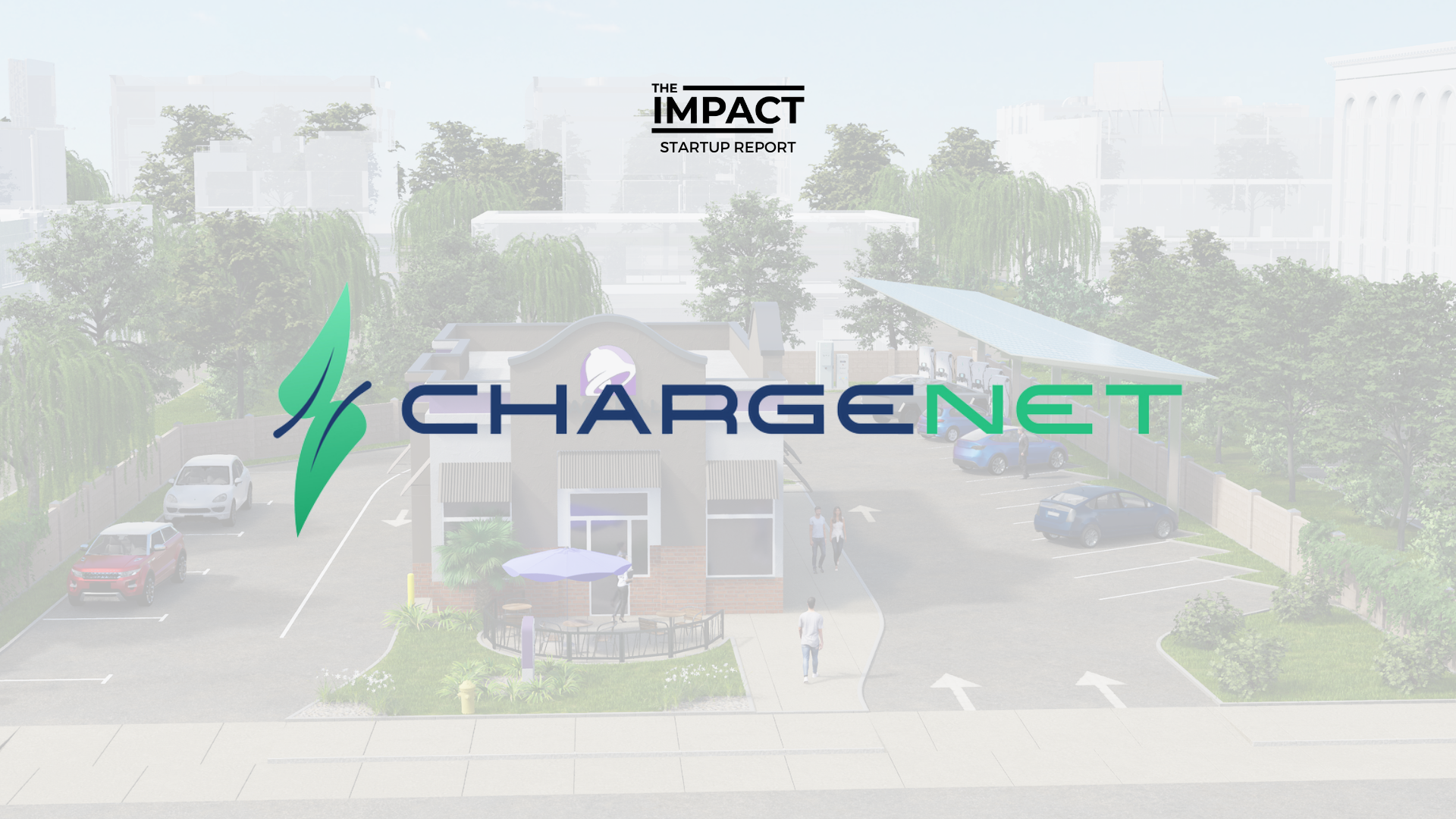EV charging stations are increasingly needed to accompany the arrival of EVs in the US market.
Climate Change and the pandemic have opened new opportunities
Adapting to climate change is the most significant challenge of the 21st century. Our continued dependence on fossil fuels for energy is an omnipresent threat that touches every corner of the market. One of the major industries in need of urgent innovation is the transportation sector, which is responsible for 29% of greenhouse gas emissions. As a response, we’ve seen the slow emergence of electric vehicles (EVs) in the United States and worldwide. While consumer adoption of electric cars has swelled, so has the need for fast-charging stations to fuel their batteries. Today, there is only one fast charger for 77 EVs in the United States, and the production of EVs is only accelerating.
In addition to this long-term problem, many sectors were significantly affected by the COVID-19 pandemic, particularly Quick Serve Restaurants (QSRs), which saw 16,000 businesses permanently close in the US. Those who survived are still struggling financially and are looking for new sources of revenue.
Enter ChargeNet
ChargeNet provides services to finance, construct, and supply the software necessary for QSRs to deliver fast, solar-powered EV charging stations on their parking lots to cater to EV-driving customers. Helping QSRs develop this service enables them to have extra income by selling clean electricity to their customers, reducing their electricity bills, and attracting new customers to their restaurants.
ChargeNet’s idea comes from Tosh Dutt, Rebecca Wolkoff and A.K. ‘Venus’ Jenkins. Tosh and Rebecca worked together in California at Enel X, an Italian energy specialist. They have years of experience in the energy, utility, software, tech start-up, legal, and financial fields.
How it works
ChargeNet connects a project financier with a QSR. The project financier manages the financial investment related to the charging station’s construction, installation, integration, and maintenance. The fast-charging station is equipped with solar panels and a battery to store excess energy. This partner receives 90% of the revenue from the sale of power at the station. QSR and ChargeNet share the remaining 10% of revenues (5% each).
The charging station comes with an app on which the customer can reserve their charging station in advance and pay digitally. ChargeNet takes care of the implementation of the solution and charges the project financier a monthly fee for using the software. The system is highly efficient, with all excess energy given to the QSR to use.
The competition
ChargeNet stands out because it is a software company with a project financier model that takes care of the hardware. By focusing on the software dimension of the solution, ChargeNet allows for energy, financial, and operational optimization. ChargetNet offers an à la carte solution for QSR and the project financier, giving them the flexibility to provide custom, optimized solutions. However, they face a relatively nascent market and the threat of emerging competitors. Still, ChargeNet is among the first to strategically position its charging stations in restaurant parking lots, with most installing stations on the street or near traditional gas stations.
The market
ChargeNet is positioned over the QSR segment. There are 200,000+ QSRs in the US market alone, fielding 6 billion visits per year, and the company is looking to go international quickly after penetrating the US market. Besides the QSR market, there is a vast landscape of parking lots ideal for charging stations in the US. ChargeNet’s business model is highly applicable for department store parking lots, for example. Already, electric charging stations have started popping up in twos in grocery store parking lots.
EV sales are growing tremendously and are expected to continue along that track in the coming years as net zero emissions targets and transportation plans grow and flourish. President Biden has introduced a goal of 50% EV sales by 2030. A vast network of convenient, accessible, and affordable charging stations is needed to meet that demand.
Outlook
EV charging stations offer an attractive and high-impact market opportunity. While scalability is crucial, the solutions companies offer must be adaptable to different locations, climates, and needs.
ChargeNet’s business model makes it attractive for investors, as they’re a software-focused company dealing with financial partners who manage the hardware component. Moreover, the US Department of Transportation and Energy announced in February 2022 a $5B plan to build out a national electric vehicle charging network. A strong surge of investment like this would enable ChargeNet to quickly accelerate its development in the coming years. However, the multiplication of players involved might add in some complications, as the negotiations will have to include three parties. Overall, the $6.5M series seed the company is looking for seems to be a promising investment. Fortified with a $60M exclusive agreement with their current customers and having signed an opportunity agreement with federal companies, ChargeNet is already a dominant player in the EV charging market with a solid foundation to build future success.
About The Author

Hugo Tranzer is French Berkeley student majoring in business with experience in Corporate Finance (FP&A and M&A). He has studied on 3 continents – EDHEC Business School in France, SungKyunKwan University in Korea and UC Berkeley in the US. He is the cofounder of e-Drop, a startup in the Water @ Home space. On his last year of studies before graduating, he wants to break into VC Climate tech to bring his skills, experience and passion for a meaningful purpose.

